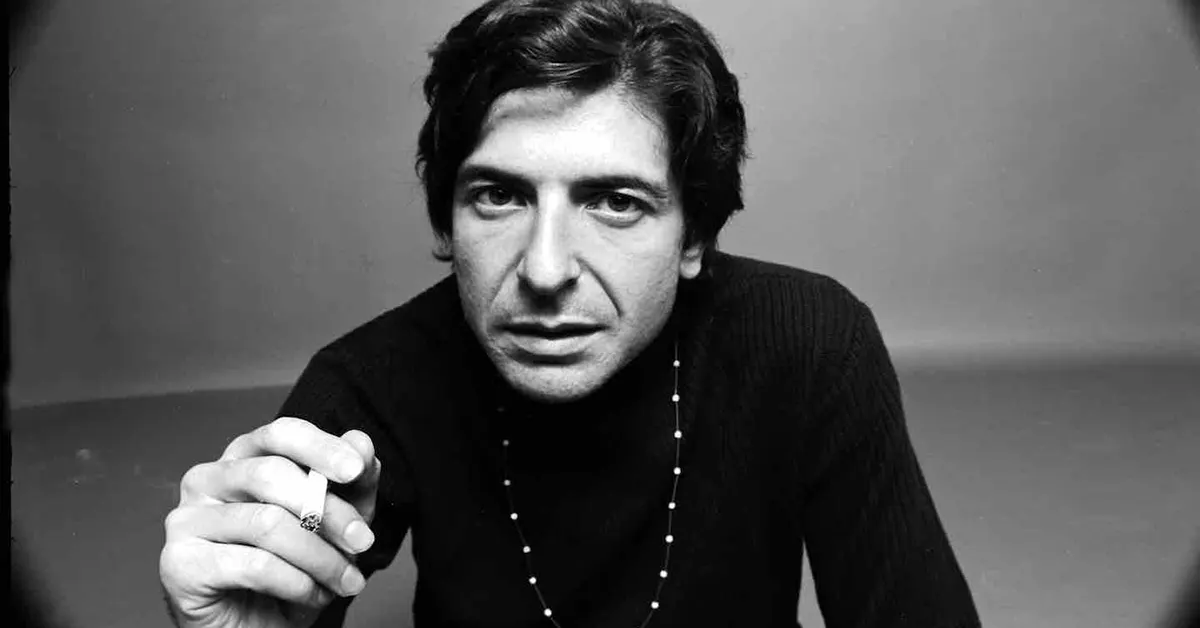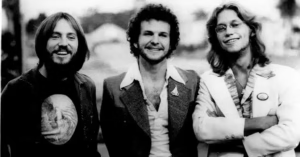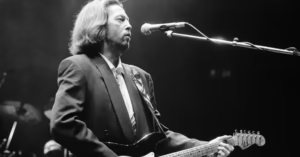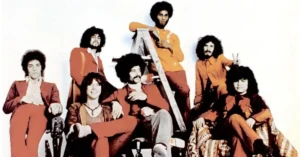Leonard Cohen: The Poet of Love, Loss, and the Sacred
Leonard Cohen. Early Life and Literary Beginnings
Born: September 21, 1934 – Westmount, Quebec, Canada
Died: November 7, 2016 – Los Angeles, California, USA
Leonard Norman Cohen was raised in a Jewish middle-class family. His early life was marked by the death of his father and a deep engagement with literature, mysticism, and philosophy.
He studied English literature at McGill University, where he began writing poetry and fiction. Before ever recording music, Cohen had already published several well-regarded books:
- Let Us Compare Mythologies (1956) – Poetry
- The Favourite Game (1963) – Semi-autobiographical novel
- Beautiful Losers (1966) – A bold and surreal novel that gained cult acclaim
Leonard Cohen. Transition to Music and Songs of Leonard Cohen (1967)
Dissatisfied with the limited reach of poetry, Cohen turned to songwriting in his early 30s, encouraged by folk singer Judy Collins.
✦ Songs of Leonard Cohen (1967)
- A quiet, minimal masterpiece
- Themes: love, spiritual longing, isolation, betrayal
- Key tracks:
- “Suzanne” – A sensual and spiritual ballad
- “So Long, Marianne” – A tribute to his muse Marianne Ihlen
- “Sisters of Mercy” – Gentle, haunting poetry set to acoustic guitar
With his deep baritone voice and spare arrangements, Cohen offered an intellectual and emotional alternative to the folk scene, standing apart from contemporaries like Bob Dylan.
Leonard Cohen. The ’70s: Depth, Melancholy, and Experimentation
Cohen’s music grew darker and more complex during the 1970s.
✦ Songs of Love and Hate (1971)
- Bleak yet beautiful
- “Famous Blue Raincoat” – A letter-like confession of betrayal and regret
- “Joan of Arc” – Combines history, mysticism, and doomed romance
✦ New Skin for the Old Ceremony (1974)
- More elaborate instrumentation
- Songs like “Chelsea Hotel #2” — a bittersweet account of a tryst with Janis Joplin
✦ Death of a Ladies’ Man (1977)
- Produced by Phil Spector — a strange departure featuring heavy orchestration
- Polarizing, though later reassessed
Throughout this period, Cohen maintained a loyal cult following, especially in Europe and Canada.
Leonard Cohen. The ’80s: Resurgence and “Hallelujah”
✦ Various Positions (1984)
- Initially rejected by Columbia Records in the U.S.
- Featured the now-iconic “Hallelujah” — largely unnoticed at first
Though not a hit for Cohen himself, “Hallelujah” became one of the most covered and beloved songs in modern music history, thanks to artists like:
- John Cale
- Rufus Wainwright
The song explores brokenness, faith, sexuality, and redemption, epitomizing Cohen’s ability to find the sacred in the profane.
Leonard Cohen. The ’90s and Monastic Retreat
✦ The Future (1992)
- Politically and spiritually charged
- “Waiting for the Miracle,” “Democracy,” and “The Future” confronted violence, hope, and decline
Shortly after, Cohen withdrew from public life, spending five years at a Zen monastery in California, where he was ordained as a monk, taking the name Jikan (“Silence”).
Comeback and Late Career Renaissance (2001–2016)
Cohen returned to music after discovering his longtime manager had embezzled most of his savings, prompting him to tour and record again in his 70s.
✦ Ten New Songs (2001), Dear Heather (2004)
- Introspective, quiet, and wise
- Collaborated closely with Sharon Robinson
✦ Live in London (2009), Old Ideas (2012)
- His live performances in his 70s were revelatory — dignified, passionate, spiritual
- “Going Home,” “Show Me the Place,” “Come Healing” became late-career highlights
✦ You Want It Darker (2016)
- Released just weeks before his death
- A final reckoning with death, God, and legacy
- Title track: “I’m ready, my Lord” – Cohen’s parting prayer
The album won Grammy Awards and was hailed as a majestic farewell.
Musical Style and Lyrical Themes
Cohen’s music combined:
- Folk and chanson, evolving into synth-based arrangements and orchestration
- A literary, poetic approach to songwriting
- A baritone voice that deepened with age into a resonant whisper
His lyrics explored:
- Love and loss
- Religion and doubt
- Sexuality and redemption
- Power, politics, mortality
Every line seemed sculpted — informed by Jewish mysticism, Christian imagery, Zen philosophy, and classic poetry.
Legacy and Influence
Leonard Cohen is revered as one of the greatest lyricists and songwriters in modern history.
Artists who cite him as an influence:
- Bob Dylan
- Nick Cave
- Patti Smith
- Bono
- Lana Del Rey
- Father John Misty
Awards and Recognition:
- Rock and Roll Hall of Fame (2008)
- Grammy Lifetime Achievement Award
- Governor General’s Award (Canada)
- Poet, priest, and prophet in the eyes of fans worldwide
His body of work remains timeless, with a legacy that transcends genre.
Interesting Facts
- Cohen never saw “Hallelujah” become a hit during his lifetime — it was covered over 300 times
- He never sang with a full band until his mid-70s
- Despite often being labeled somber, he had a wry sense of humor and sharp wit
- Was known for meticulous lyric crafting — sometimes spending years perfecting a single verse
- Wrote most of his songs on a Spanish classical guitar, often in open tunings





